The average humidifier uses about 150 watts of electricity. That’s a lot, but it’s not as much as some other devices in a home. For example, an air conditioner uses about 1,000 watts of electricity.
Moisture is essential for the health and well-being of people, pets, and even plants. Humidifiers use electricity to produce moist air. However, not all humidifiers use a lot of electricity. Some use less than 100 watts, while others use more than 1,000 watts.
In the article below, I will explain the average electricity consumption of humidifiers, as well as how to choose an energy-efficient humidifier.
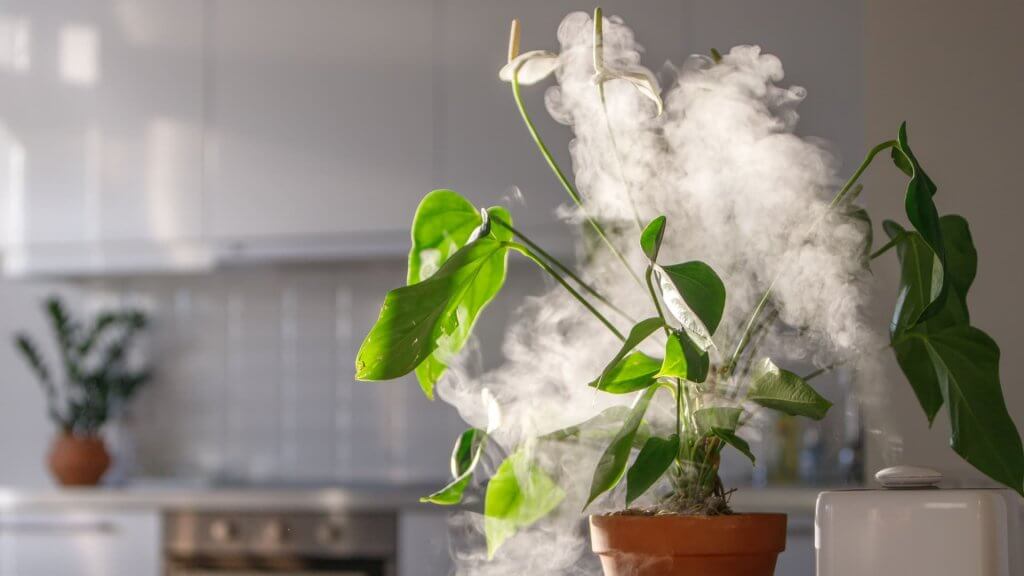
Electricity Consumption of Different Types of Humidifiers
Portable Humidifier
Portable humidifiers are a convenient way to add humidity to a room. They come in both cool-mist and warm-mist varieties. Ultrasonic humidifiers are one of the popular types of portable humidifiers. They create a fine mist that is minimally visible to the naked eye. This mist is effective at raising the humidity level in a room.
Energy consumption of:
- Cool-mist: 80 kWh
- Ultrasonic: 44 kWh
- Warm-mist: 220 kWh
Whole-House Humidifier
A whole-house humidifier is a system that attaches to your home’s heating and cooling system to add humidity to the air.
Whole-house humidification is important for two reasons: first, dry air can cause respiratory problems, and second, dry air can damage your furniture and wood floors. There are three types of whole-house humidifiers: bypass, fan-powered, and steam.
Energy consumption:
- Bypass: 0 kWh
- Fan Powered: 108 kWh
- Steam: 1.9 kWh
What Is an Energy-Efficient Humidifier?
The efficiency of a humidifier is calculated by the amount of energy it requires to release a liter of water into the atmosphere.
Energy consumption is measured in kilowatt-hours. A humidifier with a higher water output per kWh of electric consumption will be more energy efficient.
There are a few key factors you should consider when figuring out how much energy your humidifier consumes.
- Humidifiers have energy efficiency ratings (such as EEV 1 and EEV 2). The higher the rating, the more efficient the humidifier.
- The type of humidifier you use also matters, and ultrasonic humidifiers are the most energy-efficient (I will explain this later).
- If you don’t live in a big house, opt for a portable humidifier, as these tend to use less electricity.
- The speed setting of a humidifier also plays a role in energy consumption. Running the humidifier on a high setting will consume more energy compared to a medium or low setting.
- Running your humidifier for a longer duration also results in more energy consumption.
- Some humidifiers feature standby mode, which requires a small amount of electricity even though the humidifier is technically not running.
- Some humidifiers have adjustable power levels, while others do not. If you have a humidifier with adjustable power levels, set it at the lowest level possible that still meets your needs. This will help you save on your electricity bill.
- If you are leaving the humidifier on all day long, you may want to consider investing in one with an automatic shut-off feature. This will help ensure that your humidifier doesn’t run when the humidity in your home is sufficient.
See also: Best Humidifiers for Hard Water
Types of Humidifiers & Their Energy Efficiency
Here are the types of humidifiers sorted from least to most energy-efficient.
Warm-Mist Humidifiers
Warm mist humidifiers are available as stand-alone units or built-into heaters. These units warm the water to convert it into vapor and then release them into the room. This creates a comfortable environment and also helps to kill bacteria and viruses.
They are quiet and efficient, making them a popular choice for many households. However, they are not energy efficient because heating the water requires more energy.
Cool-Mist Humidifiers
A cool-mist humidifier works with spinning disks or a diffuser to create a fine mist. Unheated water is drawn into a small motor that then passes through the diffuser, turning it into a fine mist. This mist is then released into the room, absorbing moisture from the air.
The cooling mist also helps to cool down the room, making it more comfortable. This is an excellent choice for hot weather or for rooms that are already warm.
However, the water in the reservoir can become a breeding ground for bacteria and other organisms, so you will want to change the water in the humidifier reservoir frequently.
Ultrasonic Humidifiers
An ultrasonic humidifier uses vibrations with high frequency to turn water into a fine mist. This humidifier consumes less electricity than the other two humidifiers.
However, just like a cool-mist humidifier, to keep the humidifier clean, you will have to change the water frequently.
Ultrasonic humidifiers are available in both portable and stationary models and can be used to increase humidity in various sizes of indoor spaces. These are the most energy-efficient humidifiers and a very popular choice.
How Much Energy Can an Energy-Efficient Humidifier Save?
You can save a lot of energy if you switch to an energy-efficient humidifier. According to an estimate from the EPA, you can save 11.8+ kWh (kilowatt-hours) per year if you use an energy-efficient humidifier. Let us look at how much energy you can save with different energy-efficient humidifiers.
- An energy-efficient ultrasonic humidifier will save you 11.8 kWh of energy per year.
- An energy-efficient cool-mist humidifier will save you 36.2 kWh of energy per year.
- An energy-efficient warm-mist humidifier will save you 80.1 kWh of energy per year.
- An energy-efficient whole-house humidifier will save you 426.7 kWh of energy per year.
Read also: Best Humidifiers for 1000 Square Feet
Frequently Asked Questions
Do humidifiers draw a lot of electricity?
The amount of electricity a humidifier draws depends on its type and capacity. For instance, a whole-house humidifier will consume more electricity when compared to portable humidifiers. Similarly, an energy-efficient humidifier will consume less electricity than regular humidifiers.
Should I leave my humidifier on all the time?
No, you should never leave your humidifier on all the time. If you live in an area with dry weather, it becomes essential to use a humidifier, but keeping it on all the time would likely not be necessary and not advisable.
High humidity can lead to the development of mold inside your room and can lead to health problems. Also, running the humidifier will always lead to higher energy consumption and can increase your electricity bill.
Also check out my article about: Can You Place a Humidifier Near Electronics Without Damage?
Wrapping Up
If you are looking for a way to improve indoor air quality, then employing a humidifier might be a good way to do so. Humidifiers do use a lot of electricity, but the benefits of using one can outweigh their cost. Not only will you be able to breathe easier, but you will also notice that your skin and hair might become healthier.
Related articles:
Best Garage Dehumidifiers
Do I Need a Humidifier for My Plants?

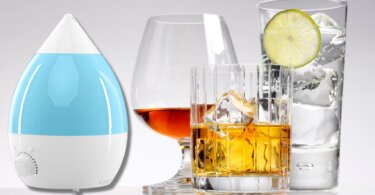
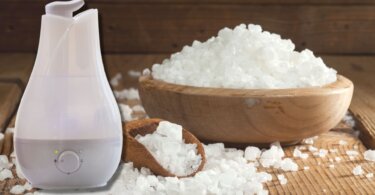
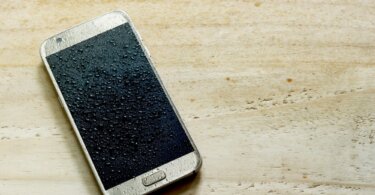
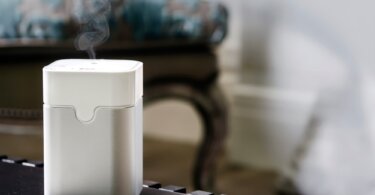
Leave a Comment